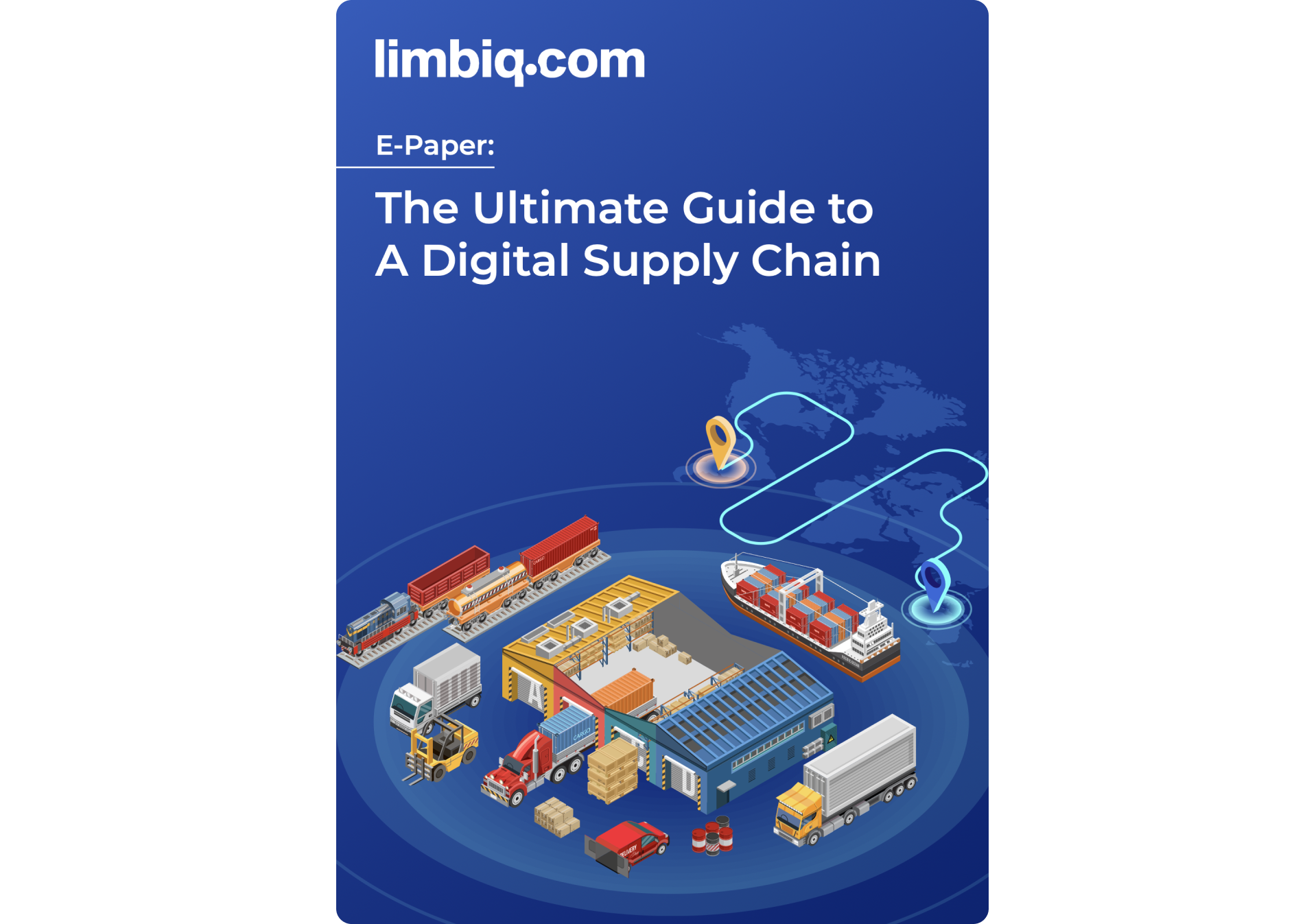Now you have a guide to plan the digital transformation of your supply chain processes
When starting the journey to a digital transformation project in supply chain management, the typical questions that managers seek answers to are:
- “How do I plan the project?”
- “Will it work?”
- “Who do I need to be involved?”
- “How do I calculate the ROI?”
- “What risks do I need to be concerned of?”
For all supply chain leaders, it is imperative to transform collaboration with suppliers, partners, and customers along the supply chain from the typical e-mail ping-pong to a digital and data-driven process. However, companies often struggle with the organization of such a journey.
Where should you start, and how should you execute?
In our most recent e-paper, The Ultimate Guide To A Digital Supply Chain, limbiq lays out the framework for supply chain leaders to plan and execute the transformation project to digitize the supply chain landscape. We make the case for why companies should go on this journey and the benefits a successful implementation will provide to all stakeholders. These benefits include better agility, higher productivity, full visibility, improved risk management, and the ability to attract better talent.
How will you benefit?
Not going digital can have grave consequences, such as higher costs and lower customer satisfaction. Furthermore, companies that choose to go digital are not only investing in their own future success but also in the future success of their supply chain partners. By embracing digital technologies, companies can drive innovation and increase competitiveness, which will ultimately lead to a stronger and more resilient supply chain. Additionally, digitizing the supply chain can also create new opportunities for collaboration and partnership, which can help companies to expand their reach and grow their business.
Preparing for Further Supply Chain Disruptions
The geopolitical and macroeconomic environment has been increasingly volatile in recent years. Supply chains have been greatly affected by the COVID-19 pandemic, which has led to unprecedented disruptions across various industries. Although there has been significant progress in getting supply chains back to normal, experts suggest that risks still remain.
In the event of future disruptions, it is important to be well-prepared to minimize the impact on your business operations. With the potential for limited resources during a crisis, it may become difficult to undertake any transformational projects. Instead, the focus may shift towards fulfilling customer orders and ensuring the continuity of your business.
To be better prepared for any future disruptions, it is wise to consider digital transformation as a proactive measure. This involves adopting new technologies and processes that can enhance the resilience and agility of your supply chain. By doing so, you can position your business to better manage any potential risks and disruptions that may arise in the future.
In 7-steps to a successful project
Our simple 7-step approach suggests building a target picture and laying out the overall ambition. Then, capture the as-is processes and define the to-be processes. This is followed by a gap analysis and the business case. Next, learn how to build a project plan and create the milestone overview, including processes, systems, and tools, as well as change management. The document also covers what to look for when forming the project team and the execution planning.
Download the free e-paper today and get The Ultimate Guide To A Digital Supply Chain. With this guide, you will be able to gain a deeper understanding of the benefits of digitizing your supply chain and the critical steps needed to achieve a successful transformation. Don't miss this opportunity to future-proof your business and stay ahead of the competition.
Download the e-paper here.
